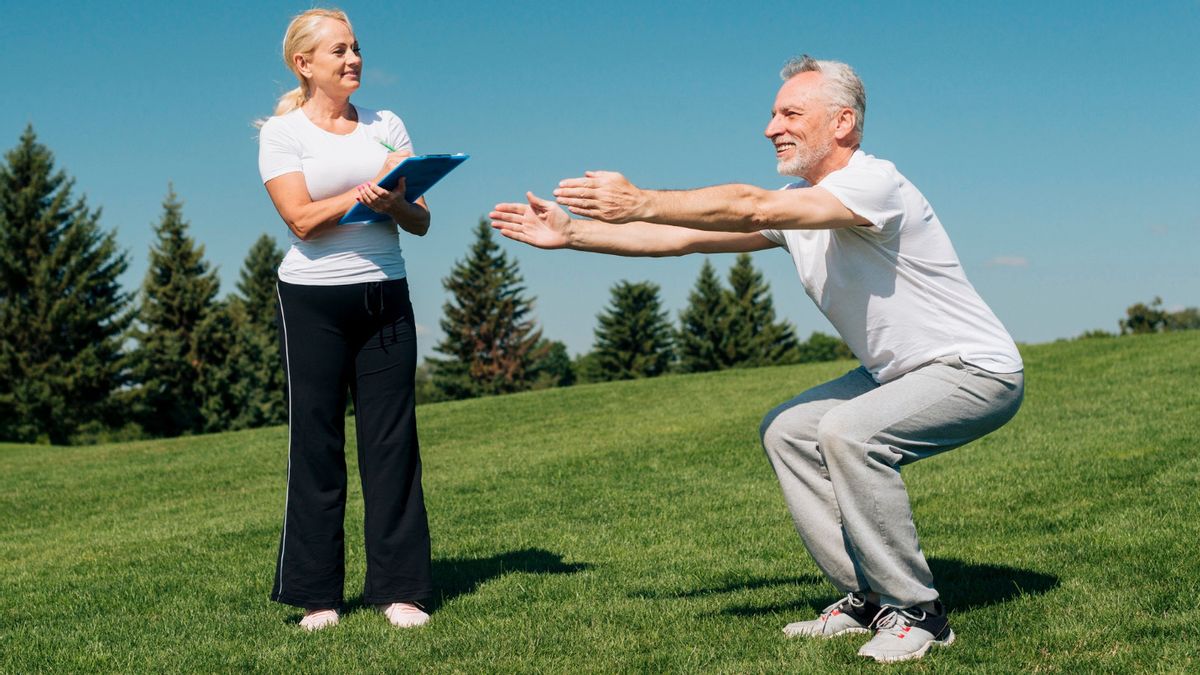YOGYAKARTA If you're looking for references to what sport is right to lower blood pressure, research published in the Journal American Medical Association (JAMA) Network, shows that tai chi is more effective in lowering blood pressure than aerobic exercises. Exercise is an important component of a healthy lifestyle to do regularly. Not only to get overall health, but regular exercise also prevents high blood pressure.
The study, published on February 9, 2024, compared the tai chi effect and aerobic training in lowering blood pressure on participants with prahipertension. After twelve months of tai chi or aerobic training sessions for one hour a week, the tai chi participating group experienced a more significant decrease in blood pressure. The results of this study show that tai chi is beneficial in improving heart health.
It is well known that blood pressure is an indicator for heart health. If it is too high, it can increase the risk of stroke and heart disease. Medical professionals track, normal systolic blood pressure is less than 120 mmHg and diastolic 80 mmHg. High blood pressure stage one is between cystolic 130-139 mmHg or diastolic 80-89 mmHg. Then, the high blood pressure stage 2 is systolic 140 mmHg or higher or diastolic 90 mmHg or higher.
Participants who took part in this study, in the prahipertension category. Launching Medical News Today, Sunday, February 25, prehipertension has higher blood pressure than normal but is not high enough to be considered a high blood pressure stage two.
The 'Prahipertensi' is defined as having a systolic blood pressure between 120 and 139 mmHg or diastolic blood pressure between 80 and 89 mmHg. It is important to remember that prehipertension is not the same as hypertension (continuous high blood pressure). However, people with their prehipertension are at an increased risk of developing hypertension, as well as heart disease, stroke, and other cardiovascular problems, "explained Rigved Tadwalkar, a board-certified cardiologist at the John Saint Health Center, Santa Monica.
People with blood pressure above normal levels can take several steps towards implementation. One of the main interventions is regular exercise. There are various choices for exercise, such as walking and cycling.
Tai chi is a form of exercise that continues to be an interesting field of study. It involves gentle movement and balance. This can help in some areas of health, such as falling prevention and pain control.
This study is a random clinical trial involving 342 adults. All participants suffered from prehipertension, which the researchers defined as systolic blood pressure (SBP) 120 to 139 mm Hg and/or diastolic blood pressure (DBP) 80 to 89 mm Hg'. The researchers excluded participants who had certain conditions such as diabetes,tender heart disease, or chronic kidney disease. The average age of participants is about 50 years.
The researchers divided the participants into two intervention groups. One group performs tai chi, and the other group conducts aerobic exercises. Each group participates in four sessions which are monitored for one hour a week from their activities for one year. The tai chi group performs tai chi style 24 forms, and the aerobic gymnastics group carries out activities such as jogging, cycling, and fast walking.
SEE ALSO:
The main result measured by the researchers was the systolic blood pressure after twelve months. They also observed several secondary results, such as changes in systolic blood pressure after six months and changes in the average diastolic blood pressure.
Overall, the group participating in tai chi experienced the greatest increase in blood pressure reading. After one year, the tai chi group experienced an average decrease in systolic blood pressure by 7.01 mmHg. On the other hand, aerobic groups experienced a decrease in the average systolic blood pressure by 4.61 mmHg. The results of this small study also added evidence that tai chi is a beneficial intervention for heart health. Even so, it still requires wider research on the benefits of tai chi related to heart health.
The English, Chinese, Japanese, Arabic, and French versions are automatically generated by the AI. So there may still be inaccuracies in translating, please always see Indonesian as our main language. (system supported by DigitalSiber.id)


















